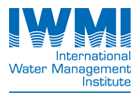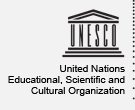Presentations 2016
Perrone, Debra
Presentation Title
California’s Sustainable Groundwater Management Act: A Perspective Looking Across the South-Western US
Institution
Stanford University
Video
Video Not Available
Presentation
Profile Picture
Picture Not Available
Abstract
As the 2015 New Year dawned on one of the worst droughts in the history of California, the state’s Sustainable Groundwater Management Act (SGMA) came into effect. The legislation is not only momentous in California’s legal history, but also it is significant in the context of western United States (US) groundwater legislation. This work analyzes the SGMA from the comparative perspective of groundwater legislation across the south-western US. We focus on the regulation of groundwater extraction in pursuit of sustainable use of the resource. We focus on five key elements in extraction permit (or, in the terminology of the SGMA, “allocation”) regimes: first, criteria for issuing groundwater permits; second, requirements to meter and report withdrawals; third, exemptions from permit requirements; and fourth, penalties for violating permit terms. Fifth, we explore how the overarching balance between state and local powers supports these elements. We compare the powers granted to local agencies in California with those available under permit regimes that apply broadly throughout the states of the south-west, as well as in “special groundwater management areas”, which typically impose more stringent requirements on groundwater permitting relative to “default” state groundwater laws. We developed a template and an associated codebook to record, in a standardized way, how each jurisdiction reflects these elements. Data were collected using a range of standard legal research techniques (e.g., legal text searches and analysis, reviewing secondary literature, interviews with state agency staff). These data enable us to demonstrate how these south-western permit regimes vary along several dimensions in relation to each of the permit regime elements.Relative to south-west states, we find that local agencies in California have the powers to establish relatively rigorous permit and allocation regimes, with comprehensive well registration, metering, and reporting of extraction, and relatively limited exemptions from these requirements. Nevertheless, California local agencies will not have the benefit of the stronger enforcement provisions available elsewhere in the south-west. Consistent with California’s local-centric model of groundwater governance, local agencies retain significant discretion in these matters, especially in relation to criteria for issuing permits. South-western permit regimes may provide useful models of regulatory options for California local agencies contemplating establishing a groundwater extraction permit or allocation regime. Under the SGMA, and for the first time, California local agencies will have a clear, broad-scale permit power with relatively few legal constraints, as well as accompanying powers related to metering, reporting, exemptions, and enforcement, which are vital to the effectiveness of a permit regime. But having these powers will not be sufficient to meet sustainability goals. History suggests that local agencies will need to overcome substantial practical and political obstacles to using these powers in order to ensure they contribute meaningfully to the pursuit of groundwater sustainability. Pointing to the precedents set by regimes in the south-west may also help to overcome these obstacles.
|












